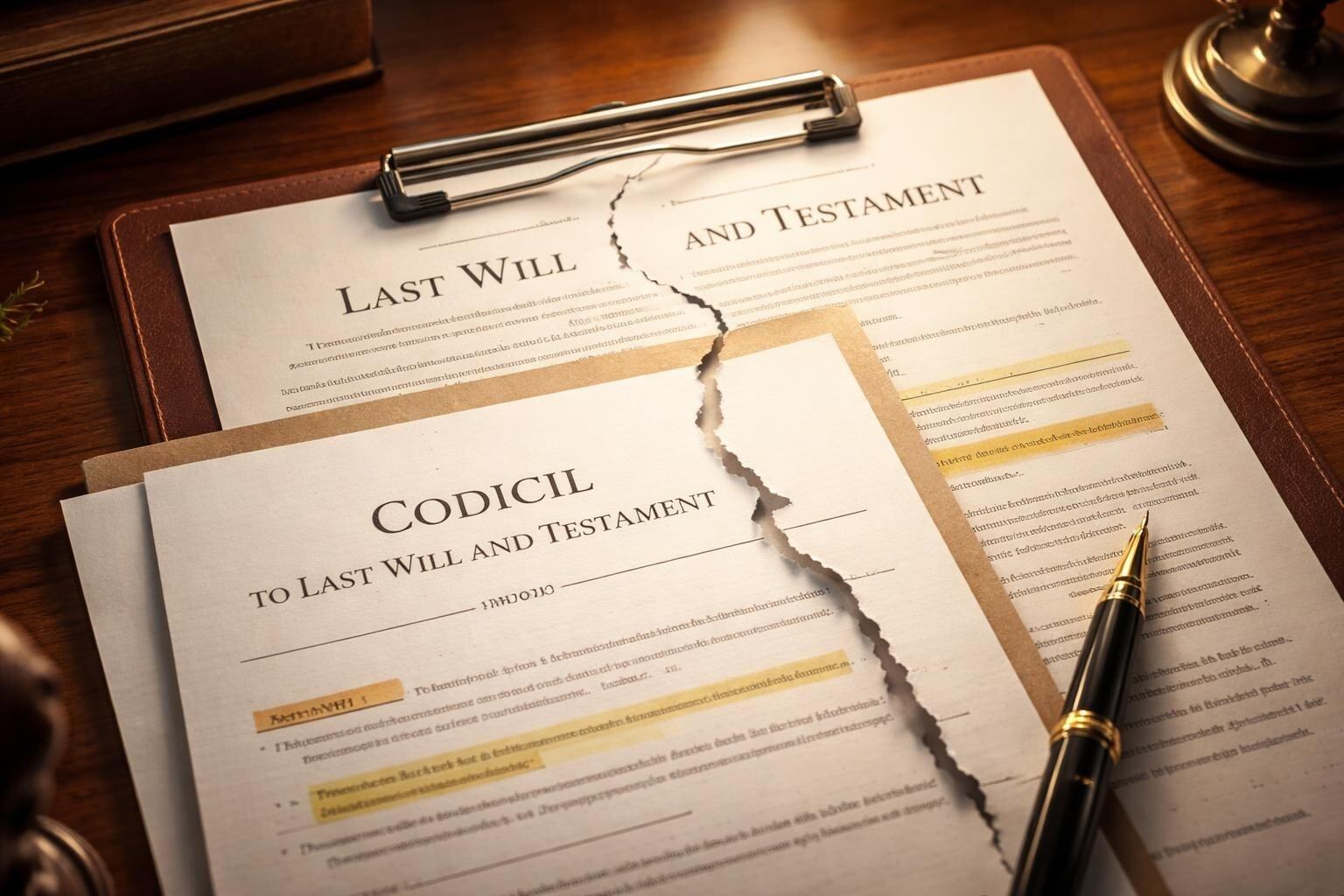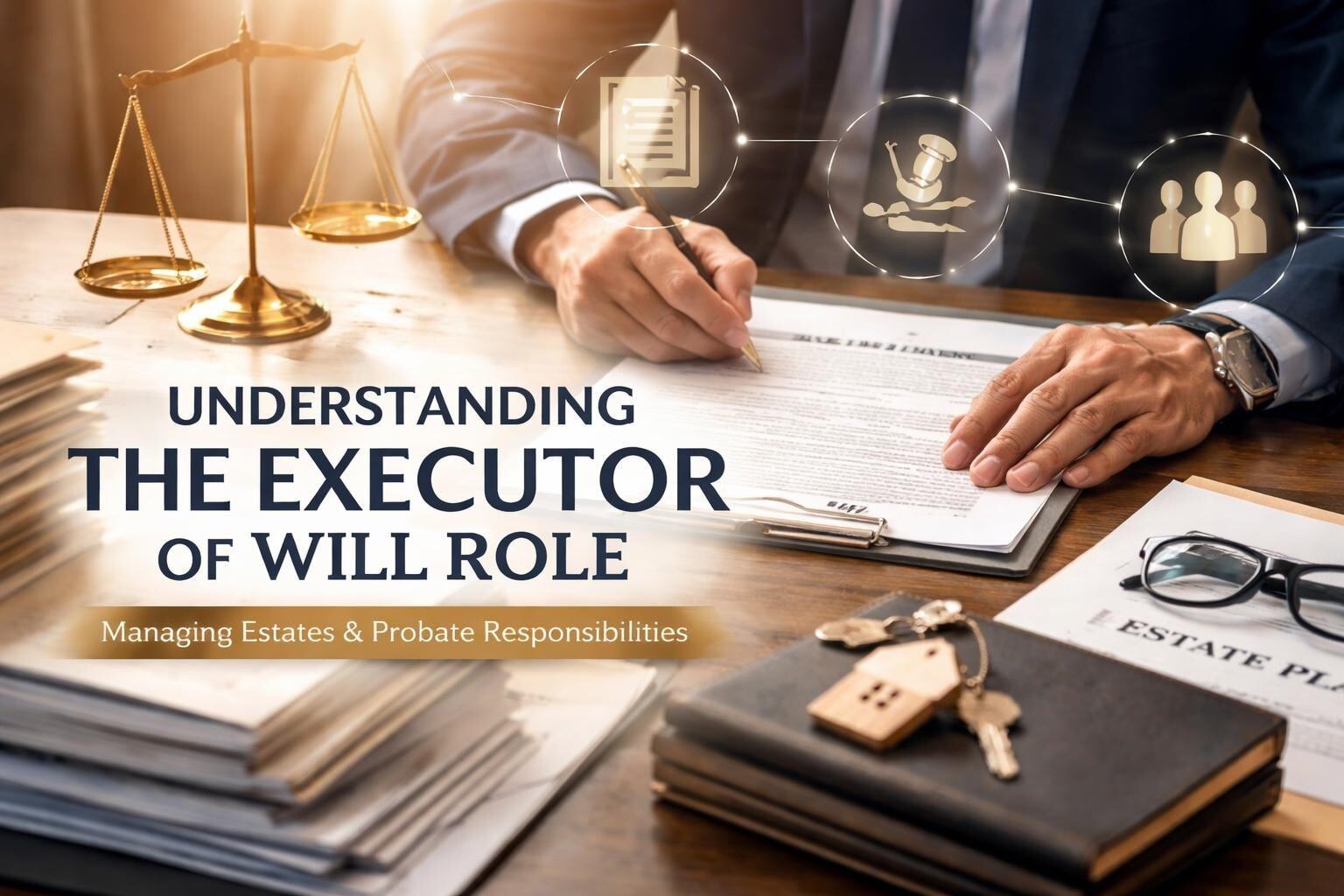Timing is key: When is the right time to make a will?
7 Signs that Indicate You Need a Will
“I’m young, single, I don’t have a lot of money or properties – I don’t need a will, right?” Maybe
“I just got married and am about to start a family – I should wait till later to write a will, right?”
Life is an unpredictable journey, filled with beautiful moments and unforeseen challenges. Amidst the whirlwind of experiences, it's essential to you and the ones you love, to plan for the future.
One of the most crucial steps in achieving this is creating a will. Yet, the question lingers: When is the right time to make a will?
In this post, you will learn about timing and critical moments in life that demand the creation of a will. Whether you're a young professional just starting to build your empire or a seasoned individual reflecting on your life's achievements, understanding the signs that indicate the need for a will is paramount.
From navigating the intricate legalities to exploring the emotional aspects, by the time you’re done reading this post, you will be well-equipped with the knowledge to safeguard your achievements, ensure your wishes are fulfilled, and gift yourself that priceless peace of mind we all need from time to time.
| Keep Reading to learn |
What does a Will do?
Simply put;
If you pass away with a will already in place:
- Your property and assets will be distributed according to your wishes.
If you pass away without a will in place:
- State law governs who gets your property and assets—this is called “dying intestate.”
- Usually, your spouse and/or children will take priority and inherit your belongings, but that’s not necessarily true.
- If you don’t have a spouse or children, then it’s more complicated.
When should I write a Will?
Here are 7 signs that indicate that it’s time for you to write a will:
-
Legal Age
In most U.S. states, once you’re 18, you have the right to form a legally binding will. By doing so, you can specify how your assets will be distributed and ensure that your intentions will be followed in the future.
For most people, this is appealing because of the peace of mind it gives you; while accumulating your wealth and becoming more successful, knowing that if something were to happen to you (God forbid), your assets are well protected. And of course, you can always make changes as time goes on.
Besides, you’re already of legal age, might as well take full advantage of it.
-
When you have a positive net worth
If you are single and don't have children but possess a positive net worth, it is crucial to have a will or a living trust in place, especially if your assets exceed $100,000.
By creating a will or trust, you provide clarity and ensure that your assets are distributed according to your wishes, reducing the risk of future complications or possible disputes among your family members after your passing.
Whether it's a small amount in savings or larger assets like a car, having a basic will safeguards your estate and allows you to control the passing down of your possessions, preventing intestacy and the potential of your assets being mishandled in your absence, or against your wishes.
-
When you get married (or remarrying)
When significant changes occur in your relationships, it’s a clear indication that you need to make some changes. Writing or updating your will becomes essential at this point.
If you are married, you should have a will because your spouse is so closely related to you that you should specify in writing whether you want her to inherit your possessions or not.
If you pass away without a will, your spouse would in most cases inherit your possessions, but you shouldn't leave that to chance. Additionally, if you want anyone other than your spouse to receive any of your assets, you need to include that in your will. By default, that won't happen, even if you've expressed your wishes to others verbally.
Furthermore, If you are considering whether or not to include your ex-spouse as a beneficiary or modify the bequests to them, it's crucial to reflect these changes in your will.
In certain states, getting married can invalidate a preexisting will, highlighting the importance of updating your will to include provisions for your spouse.
For instance, in Florida, if your will doesn't account for your spouse or explicitly state your intention to exclude them, they would receive the same share of your estate as if you had died without a will (which is still subject to intestate), unless provisions were addressed in a separate marital agreement.
-
When you have kids (also when they become adults)
Having a will is crucial if you have children, as it allows you to ensure that they are provided for according to your specific intentions. Not only does a will determine how your assets will be inherited by your children, but it also provides an opportunity to name a guardian who will care for them in the unfortunate event that both parents pass away.
It's important to regularly update your will to reflect any changes in your family, such as the birth of additional children. You might also want to consider appointing one of your adult children as the executor of your estate to handle asset distribution.
By having a will, you maintain control over the inheritance process and ensure that your wishes are upheld, eliminating any uncertainty or reliance on state laws.
-
After you start a business (as when you acquire assets)
When you embark on a business venture and accumulate assets, it's crucial to consider your succession plan. Whether you envision a family member taking over the business or someone else stepping into that role, it's essential to carefully determine how the business ownership will be divided among the intended successors.
Clearly defining the shares and responsibilities ensures a smooth transition and minimizes potential conflicts in the future.
-
When you buy a home
Acquiring a significant asset, such as a home, can significantly impact the value of your estate, leading to the need for adjustments in your will. This milestone presents an opportunity to revisit your beneficiaries, considering how the new asset affects their bequests.
Furthermore, if the asset purchase coincides with a relocation to a different state, it is crucial to consult the applicable laws regarding wills in your new state, as it may require additional adjustments beyond what you initially anticipated. In some states, a will is considered valid if it is notarized. In other states, a will is considered valid if it is signed and witnessed by two other adults. If you move to a different state, you should always update your will to ensure that it meets that state's requirements and is valid.
IronClad Family’s estate planning wizard is updated frequently to comply with each state's laws, saving you thousands of dollars and hours of sifting through legal documents.
Ensuring your will reflects these changes, safeguards your estate and guarantees that your wishes are accurately reflected in the light of your new asset acquisition.
-
After some time
Numerous factors can influence your decisions regarding the distribution of your estate, including evolving personal priorities, changing family dynamics, and updates in the legal landscape.
Health issues can also prompt the need for careful consideration, such as planning for the care of a spouse with Alzheimer's disease. To ensure your estate plans align with your current circumstances, experts advise reviewing and updating your estate planning documents every four or five years.
Regularly revisiting these important documents allows you to adapt to life changes, maintain relevance, and provide for the well-being of your loved ones in the most informed and effective way possible.
When you don’t need a Will
Are you young, broke, single, and without a child? You don't (yet) require a will.
Your will specifies how your assets are distributed, therefore if you don't have many things to divide, you might get by without a will. For instance, you may have that one friend, who is 28 years old, single, without children, and owes a lot of money on school loans. Since this person has no dependents and no assets, they don't need a will just yet.
How to set up a will: How much does it cost?
There are several approaches to take when considering the cost of putting together a will;
- Notary: While this is a cheap option, however, a notary won’t review your will or tell you if it will hold up in court. Their only job is to verify your identity, witness your signature, and record the transaction in their notary book. Cost less, yes. But doesn’t give you that peace of mind that you’ve done it the right way.
- Estate Planning Attorney: The cost of hiring an attorney to prepare your will generally can range from $300 to $1,200, depending on the going rate in your area, the attorney’s experience, and the complexity of your situation.
- Free Online estate planning wizard from IronClad Family: This wizard is included in our subscription and costs you nothing extra. At the end of the wizard, you will receive not only a will legal in your state but instructions on what other steps you should take to ensure that it is valid and recognized. Each state is different. With error-free and lawyer-approved templates to ensure you don’t make mistakes and that your will holds up in court.
If you’re anything like us, you’re probably thinking “This is all exhausting… having to go through all this process and keep all these instructions in mind.” Adding to the fact that it’s relatively expensive to hire an estate planning attorney, what’s worse is that every time you want to make a change to your will, there’s a long list of processes you have to go through and approvals you need to get.
Rolling your eyes already? Yeah, we don’t appreciate it either.
Read on to find out how you can get access to a lawyer-approved online estate planning wizard that allows you to create, edit, and manage your will however you see fit, whenever you want at zero extra cost.

Bottom Line
Timing is crucial when creating a will, and there are different ways to approach the concept of creating a will at each specific point. It can all appear to be tedious and time-consuming.
This is why we built IronClad Family, not just to simplify the process of planning your estate, but also to give you the control and flexibility to create, manage, and safely store your assets in ultra-secure encrypted vaults. And when the time comes to pass on your assets, the information in your vaults gets distributed according to your directions without anyone being the wiser.
One centralized and secure platform with unlimited vaults to store all your sensitive documents, built-in estate planning templates that save you thousands of dollars on lawyer fees, and full control over how you manage and protect your most important information.
Whether you're starting or experiencing significant life changes, IronClad Family's online estate planning wizard provides you access to lawyer-vetted templates, ensuring your will stands strong in court.
Take control of your future today and sign up for FREE on IronClad Family to protect what matters most to you and ensure your legacy is well protected both now and in the future.




